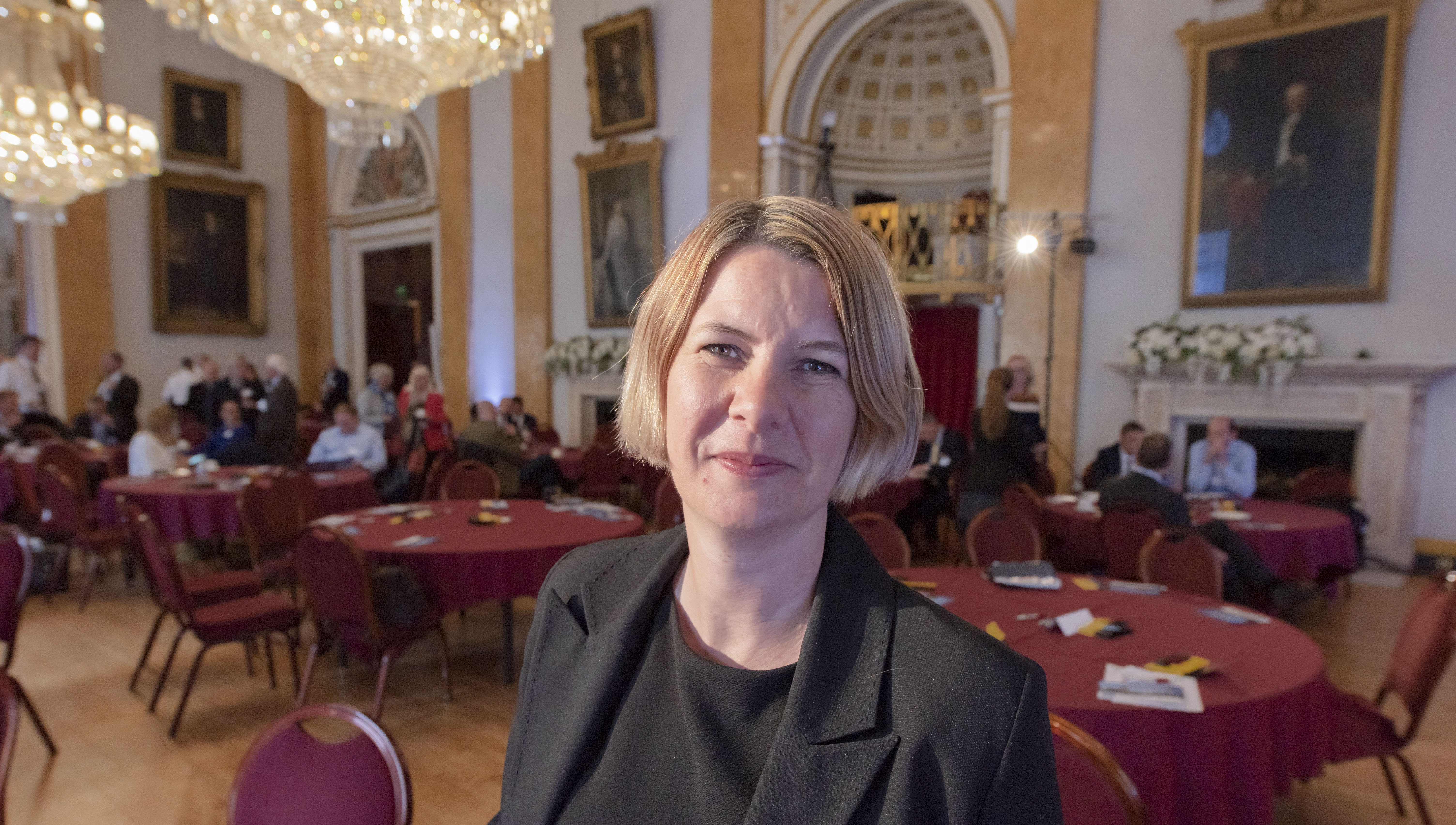- Topics
- Campaigning
- Careers
- Colleges
- Community
- Education and training
- Environment
- Equality
- Federation
- General secretary message
- Government
- Health and safety
- History
- Industrial
- International
- Law
- Members at work
- Nautilus news
- Nautilus partnerships
- Netherlands
- Open days
- Opinion
- Organising
- Podcasts from Nautilus
- Sponsored content
- Switzerland
- Technology
- Ukraine
- United Kingdom
- Welfare

Supporting diversity requires little more than to be a decent human, but being a good ally means doing that loudly and publicly to help keep people safe and to stamp out discrimination, writes Nautilus International head of strategy Debbie Cavaldoro
During LGBT+ history month I have been spending time considering what it means to be a good LGBT+ ally. It seems like an easy question – isn't it about being respectful and treating everyone as a human being?
Well yes, it is. Treating people with respect shouldn't have to be something asked for or specified in advance. So do we need to shout that we are allies or can it just be assumed? Do the actions of an ally need to be specified? And why does it feel like it is more important to specify this for LGBT+ events than others? (For example, the TUC LGBT+ conference notes that attendees 'shall be a member of the LGBT+ community or one of its allies') but other diversity conferences do not make this distinction.
Is it harder to be an LGBT+ ally than a feminist ally? Do they require different things of a person? Or is it a case that some are 'asking for a friend'?
As the co-chair of the Maritime UK Diversity in Maritime taskforce I see the reality of needing to support my LGBT+ colleagues in this way with depressing regularity. Whenever a Pride in Maritime event is announced, there will inevitably be someone popping up on social media demanding to know why we are wasting our time with this, why LGBT+ maritime professionals need highlighting in this way or, the hilarious 'there are no gays at sea'.
The LGBT+ maritime community is certainly not alone in facing this sort of prejudice – I am often asked why I am wasting my time encouraging women to go to sea, when International Men's Day is (Friday, 19 November) or whether such and such a statement is sexist (hint: if you wouldn't say it to a man, don't say it to a woman).
However, when it comes to the LGBT+ maritime professionals, there is always an element of righteous indignation in the responses. I work for maritime professionals union Nautilus International and on more than one occasion we have had emails from members demanding that we drop our LGBT+ focus or they will quit their membership. I am delighted to work for an employer who knows exactly how to deal with these communications.
Danny McGowan, chair of the Pride in Maritime network, mentioned in an article recently that sexuality sometimes gets confused with sex and maybe that is why some feel it should not be discussed in the workplace.
But that doesn't work either. Another maritime friend once told me about the dilemma she faces every time she starts to form social bonds with colleagues at sea. At which point does she mention that her 'partner' is in fact her wife? She explained how much she risks when imparting this very basic piece of information and how she has to brace herself waiting for the response.
This gets to the heart of why we must declare we are LGBT+ allies and is the easiest route to explaining how to be one.
For Women In Maritime and Ethnicity In Maritime, what you see is what you get, and we face discrimination because of those characteristics, but many LGBT+ maritime professionals, especially those who work at sea, will hide this part of themselves to protect themselves. They try to keep a part of themselves locked away to avoid the discrimination (or even straight forward criminal prosecution in some countries) that acknowledgement may bring.
But LGBT+ maritime professionals should not have to live in fear, they should not have to hide parts of themselves away, only to be lived in the spaces between. They should not have to worry about how to answer 'what did you do at the weekend' for fear that a colleague may be shocked to find out that their romantic dinner was with someone of the same sex.
This is why we must proclaim ourselves to be allies, so that people from every walk of life can feel safe enough to be their true selves. Being one is simple - it literally requires you to do nothing more than be a decent human being. But you must do it openly and loudly so that those who live with fear know they are safe in your company, and those who wish to pass judgement, to spread their hate and to create fear know they are the ones who are not welcome.
This is the only way to normalise differences and end the discrimination that feeds off division.
Tags
